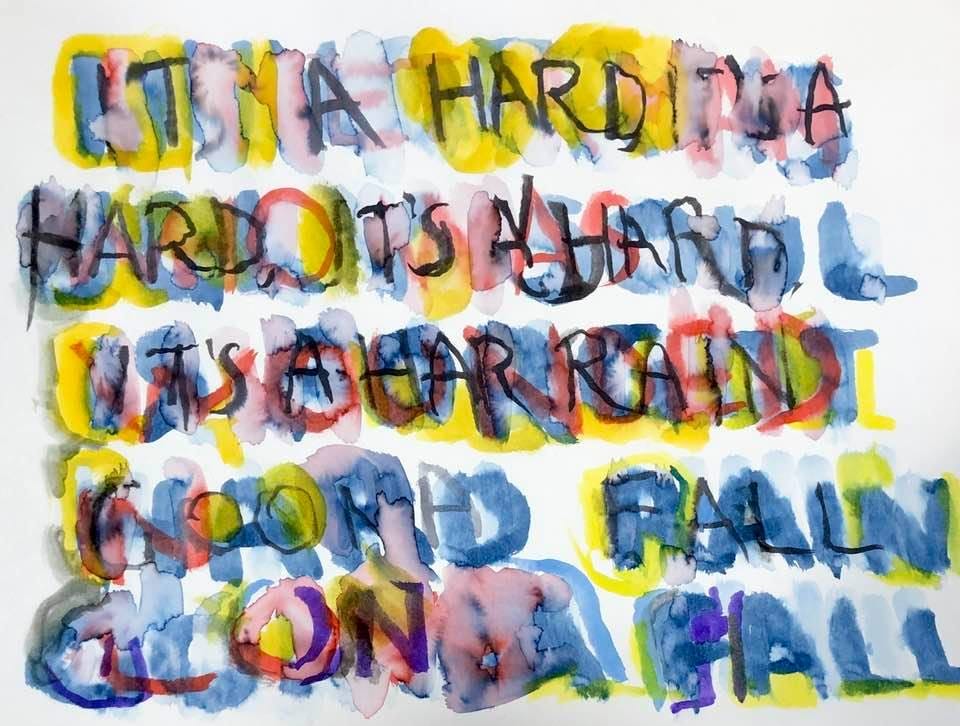Naming rights. Blaming rights. The crimes of the Sackler family.
We went to donate blood yesterday at the Red Cross building in the Hospital District on Chicago’s west side.
The Red Cross building is named for former Illinois Governor and billionaire Bruce Rauner.
That’s right. Bruce Rauner has naming rights to the Red Cross building.
I’ve been thinking about naming rights lately.
I read that big donors to the Obama Presidential Center aren’t getting naming rights for themselves.
For example one of the spaces is being named to honor the great Chicago historian and activist Timuel Black and he wasn’t a donor to the center.
He was just a guy who spent his life working for the people.
There once was more of that.
Public spaces were named to honor people - mostly white and male people - but, still, naming rights weren’t for sale.
Remember the old Curb Your Enthusiasm episode where Larry David attends the dedication of a building wing named for him because of his donation? Larry David gets pissed off because Ted Danson donated to another wing but replaced his name with “anonymous”. Larry David correctly sees this as a ploy by Danson to look better because he let everyone know that he, Danson, was the anonymous donor.
Walk into the main atrium of the Renzo Piano designed Modern Wing of the Art Institute of Chicago and you are in Ken Griffin Court,
Griffin is Illinois’ richest man and CEO of Citadel Management. Citadel is a hedge fund management company.
It is now rumored that Griffin is willing to spend $300 million to get naming rights on Illinois’ next governor to replace JB Pritzker. He’s shopping for a candidate as we speak.
Of course the billionaire Pritzker family does a lot of naming themselves.
Milenium Park’s Jay Pritzker Pavilion sits right across the street from Griffin Court.
Last week there was the decision by the Metropolitan Museum of Art in New York City to remove the names of the Sackler family from its building.
The Sackler’s are America’s leading dope dealers and pushers.
They owned Purdue Pharma and have naming rights to the country’s opioid epidemic.
Removing the Sackler name from the Met didn’t happen easily.
I survived the opioid crisis. I narrowly escaped. I went from the darkness and ran full speed into The World. I was isolated, but I realized I wasn’t alone. When I got out of treatment I became absorbed in reports of addicts dropping dead from my drug, OxyContin. I learned that the Sackler family, whose name I knew from museums and galleries, were responsible for the epidemic. This family formulated, marketed, and distributed OxyContin. I have decided to make the private public by calling them to task.
The Met’s actions to remove the Sackler name preceded by a few days a ruling by a judge in the southern district of New York which reversed a terrible agreement that shielded the Sackler’s from personal responsibility as dope pushers.
Because of thousands of lawsuits, Sackler’s Purdue Pharma filed for bankruptcy restructuring in September 2019, which automatically put a hold on all the claims against it.
Nearly two years later, Judge Robert Drain, the bankruptcy court judge in White Plains, N.Y., confirmed a plan:
Purdue Pharma would be formally dissolved and would re-emerge as a new company called Knoa Pharma that would still produce OxyContin but also other drugs. The new company’s profits would go to states and communities to fund opioid treatment and prevention efforts.
The Sacklers would renounce their ownership and contribute $4.5 billion of their fortune to the state and local opioid abatement funds.
$4.5 billion is chump change to the Sacklers.
In exchange, all lawsuits against Purdue would be dropped. What made the settlement so outrageous was the Sacklers’ insistence on being released from all Purdue-related opioid claims, although they had not personally filed for bankruptcy.
In court, lawyers said there are more than 800 lawsuits that name the Sacklers.
By the way, as part of the deal the Sacklers lost the ability to buy future naming rights.
But yesterday judge Colleen McMahon of the U.S. District Court for the Southern District of New York said that the settlement could not go forward because it releases the Sackler family from personal liability for the awful damage they have done.


